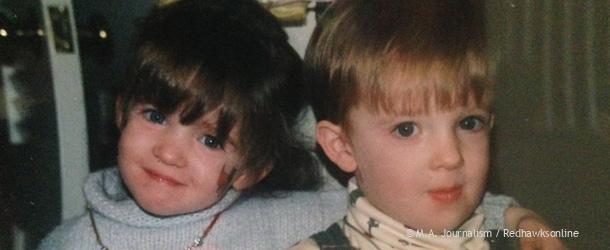Reflecting on commonly asked questions about twins, studies and students explore similarities and differences between their siblings and themselves
I’m a twin. People often ask me, “Do you like being a twin? Do you get along? What’s it like having someone in the same grade? Do you have a special bond?”
Those are logical questions, but others can be strange. For example, I have been asked, “Are you and your brother identical twins? Can you read each other’s minds?”
It’s hard to give simple answers. My brother Matt and I are fairly close, but I also have an older sister, Sam, and we are very close as well. On the other hand, my brother and I have many different opinions and ways to do things, which accompany being human and being a set of fraternal twins.
Research shows that the change in genetic structure and environment can set a twin very much apart from one another. There are some big differences that come along as being a twin. In fact, there are many.
At Minnehaha Academy, there are sets of twins in each grade. The freshman class includes Matt and me, triplets Ian, Emrik and Abby Mundschenk. The sophomore class has Zach and Danielle Pattison, and Alex and Justin Evenson. The junior class includes Josh and Tyler Radtke. The senior class Catherine and Kevin Dustrude and Scott Stewart who has a twin who attends Edina High School.
“I love being a twin, it’s awesome,” explains Catherine Dustrude “It’s nice having someone the same age in the house.”
Many advantages comes along with being a twin as well.
“It’s nice,” says Alex Evenson. “If you don’t have the homework in the subject, you can also ask each other for and more help. You always have someone to rely on.”
Josh Radtke agreed, “When we came to this school you knew you already had a friend and each other, someone to talk to. Nice knowing that someone is always there.”
The Radtkes are considerably different from each other. While playing different sports and participating in different activities, one word that comes to mind about their relationship is unalike, which is totally common and normal for a set of twins. Danielle Pattison has some of the same feelings.
“We are different in everything that we do,”she said. “His thought process is different and everything about him is pretty much different. I’m organized, everything has to be organized, and he’s messy. We are also not close at all. You know it’s probably because he’s a guy and I’m a girl, so there’s that factor, too.”
Being a twin doesn’t mean you’ll be alike. There are two types of twins, fraternal or dizygotic and identical or monozygotic. The differences between the two is that fraternal twins develop fertilization of two separate eggs; with identical twins,a fertile egg has to be separated into two.
At Minnehaha there is only one set of identical twins, Ian and Emrik Mundschenk.
“We have become closer over the years,” said Justin Evenson. “We share the same interest and play some of the same sports. We both want the same things but we both want to do it a different way to get there.”
Catherine and Kevin Dustrude said they share more similarities than differences. When asked about their differences, there was a cricket response, nothing really came to mind.
“I’m thankful for how well we get along,” says Catherine. “We know each other pretty well.”
“We know each other well enough to be able to tell each other if they made a dumb move or what they did was stupid,” said Kevin.
Researchers like to study twins because they have many factors in common, making their differences interesting. At the University of Minnesota, Center for Twin and Family Research, they have three studies in progress. It includes a twin family study, a sibling study and a DNA study.
“These non-shared environmental influences essentially boil down to the individual experiences siblings have,” said twin researcher Gerd Kempermann, “and their own personal interactions with their environment.”
So, is it ‘special’ to be a twin? It’s not something totally special to me, but it can be to others’ minds. I have to come to accept that once people know we’re twins, they will look at us differently than if we were just brother and sister.
Our differences, especially in gender, play a huge role in the bonding that we share. I don’t know if we have “a special bond” or can “read each other’s minds and thoughts,” but I take it for granted that I always have someone there for me, going through most of the same things and changes as myself.
No matter how hard I try, Matt will always be the same age as me and we have to follow the same set of rules set by our parents. However, he will always be my close friend in age and even better friend in life.

